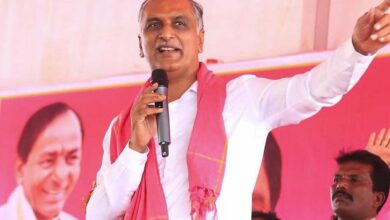will detail the guidelines for conducting the common university entrance test for CUET-UG and postgraduate (CUET-PG) programmes 2025
A draft proposal outlining the updated rules for administering the Common University Entrance Test for Undergraduate (CUET-UG) and Post-Graduate (CUET-PG) programs in 2025 will soon be made public by the University Grants Commission, which is seeking input and recommendations from institutions, instructors, parents, and students.

According to UGC Chairman M Jagadesh Kumar, an expert group has been established to examine how the CUET-UG and CUET-PG examinations would be administered in 2025.
The committee reviewed the test’s format, number of papers, length, alignment with the syllabus, and operational logistics, and in its meeting on November 13 of this year, it took these suggestions into consideration.
In light of this, the UGC, which oversees colleges and universities, intends to make some significant announcements about the CUET for undergraduate and graduate programs in order to increase its effectiveness and efficiency for the 2025 academic year.
Implemented to standardize the admissions process across colleges, CUET has created an open, cutting-edge system that ensures applicants with varying educational backgrounds have equal opportunities.
In an effort to standardize the admissions procedure for undergraduate (UG) and graduate (PG) programs across institutions, the Common University Entrance Test was implemented in 2022. All applicants now have equal opportunities thanks to CUET’s fair playing field for students from all socioeconomic origins and educational boards. CUET was accepted by 283 institutions last year, and 13,47,820 applicants enrolled.
CUET has simplified admissions, reduced the need for different cut-offs, and made the admissions process open and technology-driven by pushing universities to adopt a single, nationwide entrance exam.
The UGC chairman said that in order to provide students taking CUET a better, more effective, and more comfortable atmosphere, it is essential to consistently enhance the examination procedure based on input from previous years.
The UGC released draft rules and requested public comment on December 5. Biannual admissions, multiple entry and exit, eligibility for admission in any UG or PG program discipline regardless of the subjects taken in class 12, and the requirement that a student earn at least 50% of total credits in a discipline in order to earn an undergraduate degree with a major in that discipline were some of the major reforms in the draft regulations.
The commission has requested that comments on the proposed rules be submitted by December 23 of this year at the latest.
The chairman of the UGC said that the commission had just finalized guidelines for the Recognition of Prior Learning and that they would shortly be made available to the public for comment.
“We must address the challenges faced by India’s large informal workforce, which requires formal education and career progression opportunities,” the chairman of the UGC said.
A key component of the National Education Policy (NEP) 2020 objective is the recognition of prior learning, or RPL. Through RPL, people may formally acknowledge the skills and competences they have gained through experiential, non-formal, or informal learning. These people may get official degrees, enter further education, and increase their employability via RPL.
RPL is supported by the National Credit Framework (NCrF), which makes it easier to credit all types of learning, including academic, vocational, and experiential.
RPL improves employment chances by bridging the gap between formal education and real-world experience, allowing people to turn their talents into credentials.
RPL promotes social inclusiveness, economic expansion, and a workforce with more competence.
The UGC adopted the draft rules for adopting RPL by outlining a number of procedures at its meeting on November 14 of this year.
In order to guarantee equity, consistency, and inclusion when putting RPL into practice, the recommendations also place a strong emphasis on strong governance, quality assurance, and cooperation between legislators, academic institutions, employers, and assessment organizations.
NEP 2020’s objective of advancing a comprehensive and fair educational system is in line with this UGC effort,” Jagadesh Kumar said.





